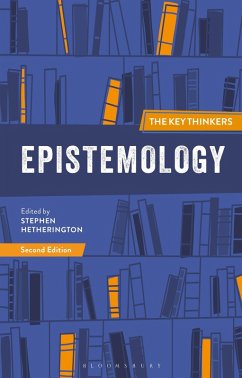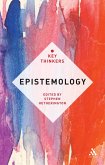What have the great philosophers written about the nature of knowledge? Epistemology: The Key Thinkers tells the story of how our thinking about knowledge has developed, introducing you to some of the problems and forces that have dominated the history of philosophy.
Beginning with Plato, Aristotle, ancient sceptics, and the medievals, before moving to Descartes, the British empiricists, Kant, American pragmatism, and twentieth-century thinkers such as Ludwig Wittgenstein, W. V. O. Quine, Alvin Goldman, and beyond, each chapter guides you through the ideas, contribution, and legacy of a leading philosopher or movement. This second edition includes:
· A new chapter covering medieval epistemology
· Extended guides to further reading and future directions for epistemology
The final chapter looks to the future, highlighting some of the very latest debates that energise philosophical writing today about knowledge and how we know what we know.
Beginning with Plato, Aristotle, ancient sceptics, and the medievals, before moving to Descartes, the British empiricists, Kant, American pragmatism, and twentieth-century thinkers such as Ludwig Wittgenstein, W. V. O. Quine, Alvin Goldman, and beyond, each chapter guides you through the ideas, contribution, and legacy of a leading philosopher or movement. This second edition includes:
· A new chapter covering medieval epistemology
· Extended guides to further reading and future directions for epistemology
The final chapter looks to the future, highlighting some of the very latest debates that energise philosophical writing today about knowledge and how we know what we know.









